Sample Reading Enrichment Supplement
Page 4 of 42
For millennia, the Silk Road (actually, a network of trade routes that spanned Eurasia) had been the means of contact between the great civilizations of China, India, the Near East and Europe. Trade caravans, merchants, diplomatic missions, warriors, religious pilgrims – millions of people traversed this trade route over time. Among them was an intrepid merchant from Venice by the name of Marco Polo, who embarked on the Silk Road for trade, good fortune and adventure. Marco wrote a book about his travels, which included his 17 years of service as a travelling ambassador for Kublai Khan, the grandson of the ruthless and brilliant conqueror, Genghis Khan, whose Mongolian warriors had subjugated most of Eurasia. As horrific as Genghis’ conquests were, under Kublai, the world became connected like never before. Historians call this period Pax Mongolica or Mongol Peace.
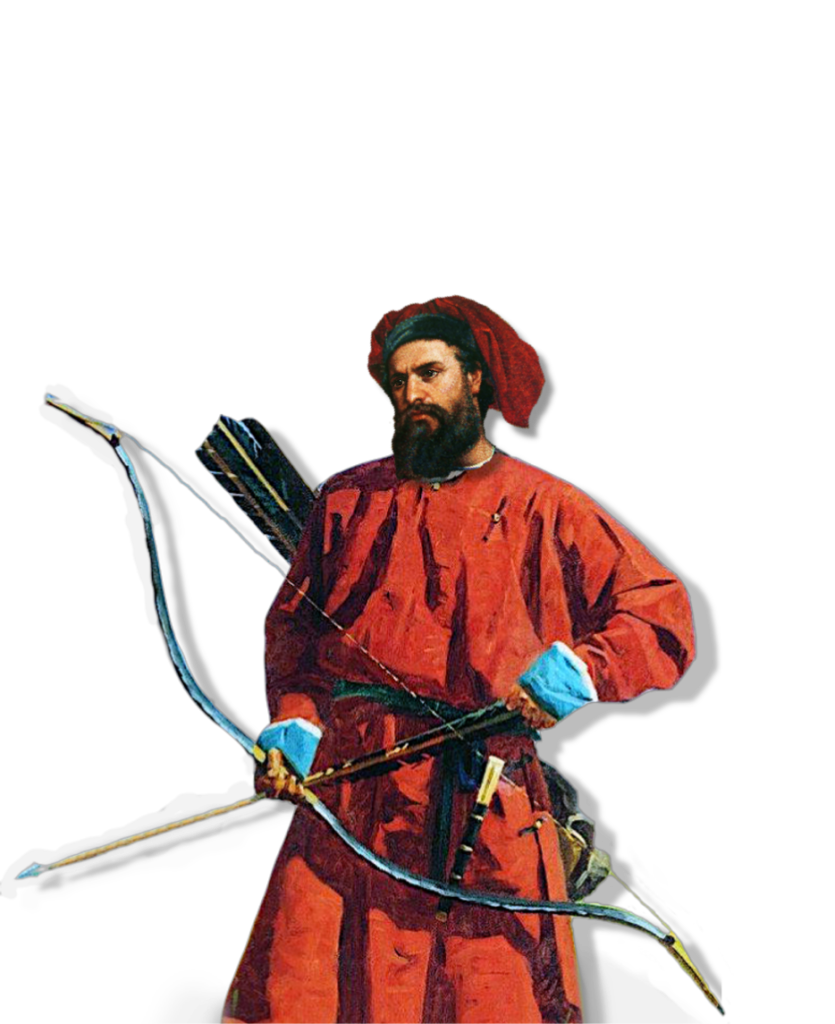
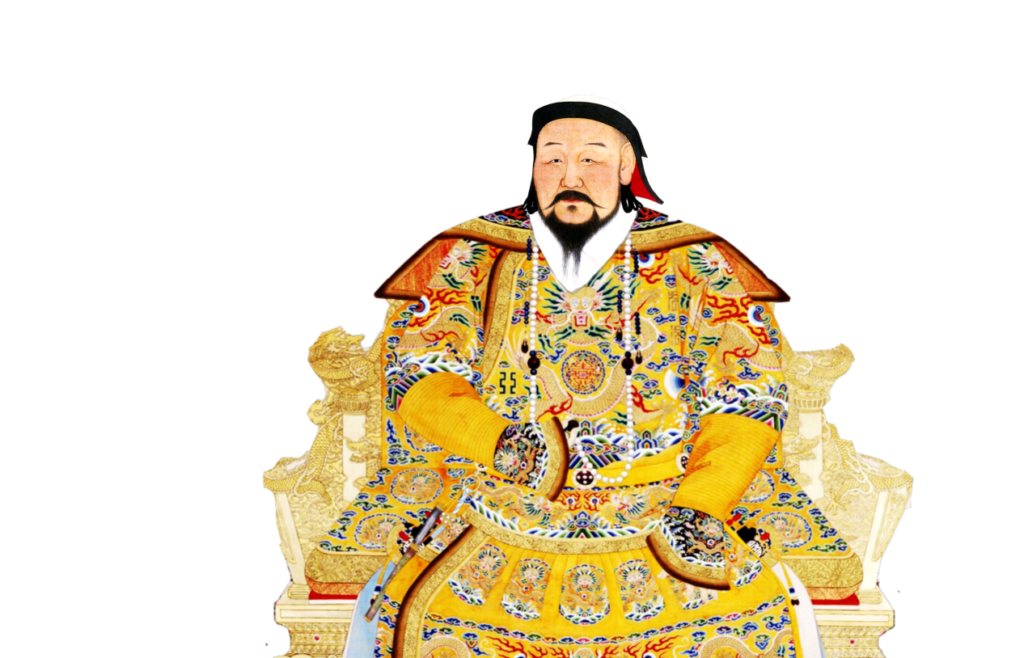
Page 6 of 42
The Mongols spread ideas, technology and languages from one place to another. They allowed freedom of religion and exempted teachers, priests and artisans from paying taxes.
Inventors, architects, singers and writers were sent to the far corners of the empire to improve the lives of Mongol subjects.
Trade boomed and the Silk Road flourished.
Trees were planted to provide caravans with shade, the new idea of paper money was encouraged, rest stops for travelers called caravanserais were set up at regular intervals and the invention of passports assured safe passage just about anywhere.
The years Marco Polo traveled (1271-1295) are when Kublai Khan ruled the largest empire the world has ever known.
It is considered the Silk Road’s Golden Age.
Page 4 of 42
Just as the Silk Road really should be called the Silk Roads because there were many trade routes crisscrossing Eurasia, Marco’s book should really be called the books.
Hand-written centuries before the printing press was invented, the original (now lost) would have been hand copied and then re-hand copied by monk scribes, who were at the same time translating their copies of copies into all the various languages of Europe. Needless to say, there was a lot of room for mistakes.
There are over one hundred of these early manuscripts still surviving that we need to refer to and as you can imagine, no two are alike.
Alternatively titled A Description of The World and The Travels of Marco Polo, the book propelled Marco to fame in his own lifetime. This was an unusual feat for an author in the Middle Ages.
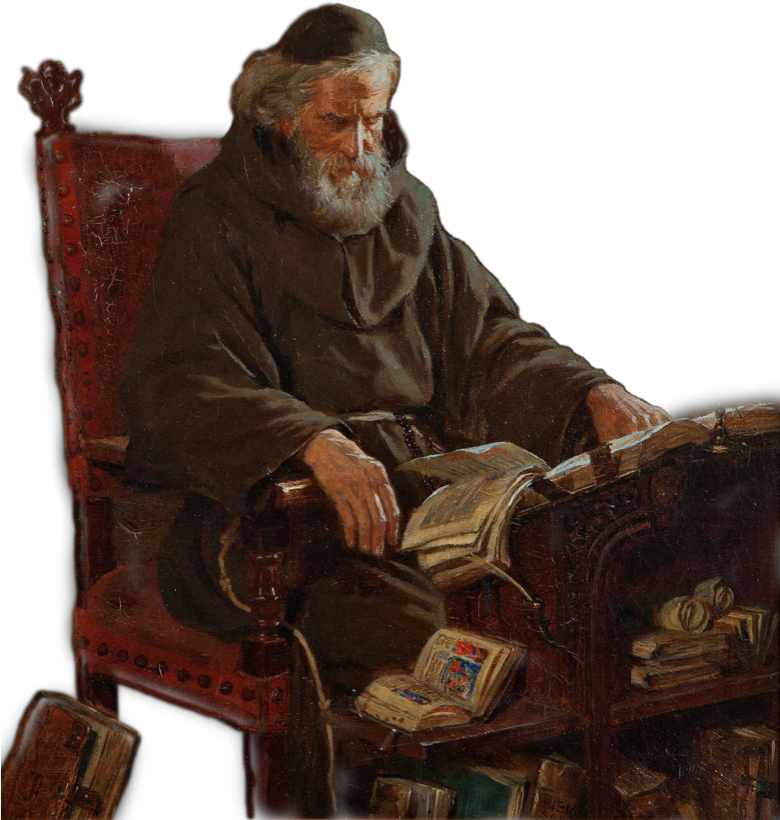
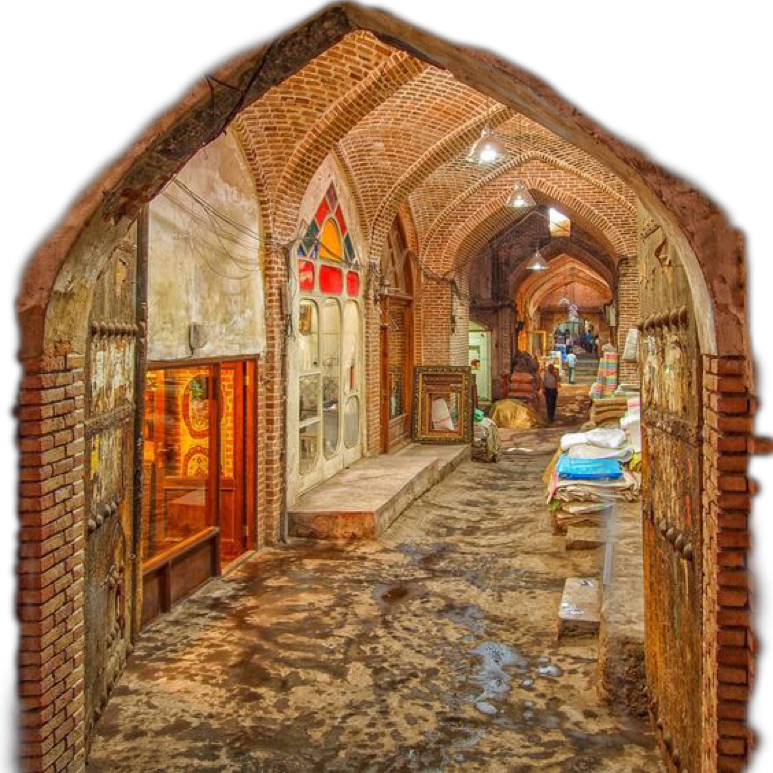
The next major stop was the city of Tabriz in NORTHWEST Persia, which Marco describes as,
Page 10 of 42
”Entirely surrounded by attractive orchards full of excellent fruit… The city is so favorably situated that it is a market for merchandise from India and Baghdad… good profits are made by travelling merchants…And many latin merchants come here to buy the merchandise imported from other lands…It is also a market for precious stones, which are found here in great abundance.”
Usually found in the shadow of a major mosque, the commercial, social and political heart of a Middle Eastern city is its bazaar.
Tabriz’ famous covered bazaar is the oldest in the world and stands on the same spot the Polos traded in over 700 years ago.
Marco would feel right at home wandering its maze of shops and corridors. So vast is this bazaar, it still houses over 30 caravanserais.
Page 12 of 42
When they had first met the Khan, the Emperor had bought all the goods (mostly gems) the two Polo brothers had to offer for a handsome profit.
He then gave them letters for the Pope and Kings of Christendom and sent them back to Europe with an important mission; return to him with one hundred scholarly priests, hand-chosen by the Pope, as well as holy oil from a lamp that the faithful believe burns eternally at Christ’s tomb inside the Church of the Holy Sepulchre in Jerusalem.
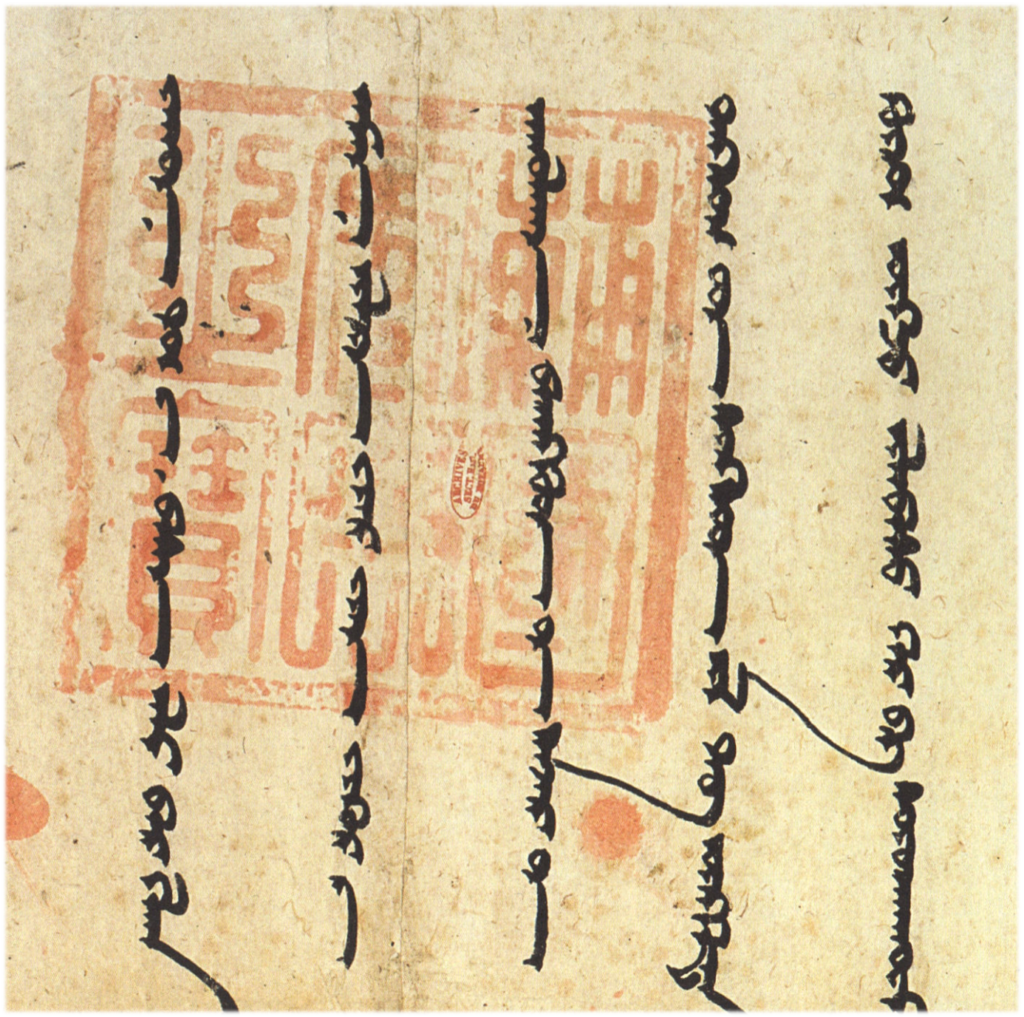
Mongolian letter in Uyghur script from Kublai’s successor and grandson, Öljeytü Khan to King Philip IV of France in 1305, regarding an alliance between the Mongols and Europeans against the Muslims, which never came to be.

